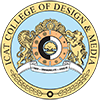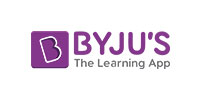
Course Overview
Bring the Virtual World Closer to Your Gamer
The Bachelor's Degree in Game Programming at ICAT is a full-time program that imparts all the knowledge and skills required for one to create the coding for games and simulations, excluding the support of external libraries or other dependencies.
The program incorporates all the major specializations of game programming, such as Graphics, Physics, Artificial Intelligence, Networking, and Game Engines. It trains students to develop cross-platform games including games for XR technologies, thus enabling students to build a rich portfolio. The all-round knowledge, intense hands-on practice, and opportunities to seek ideas from professionals in field enable the students to take up varied roles with high confidence in Game Studios, Web Development Houses, VR/AR Industries, IT Industry, Simulation Studios, and UX Design Companies.
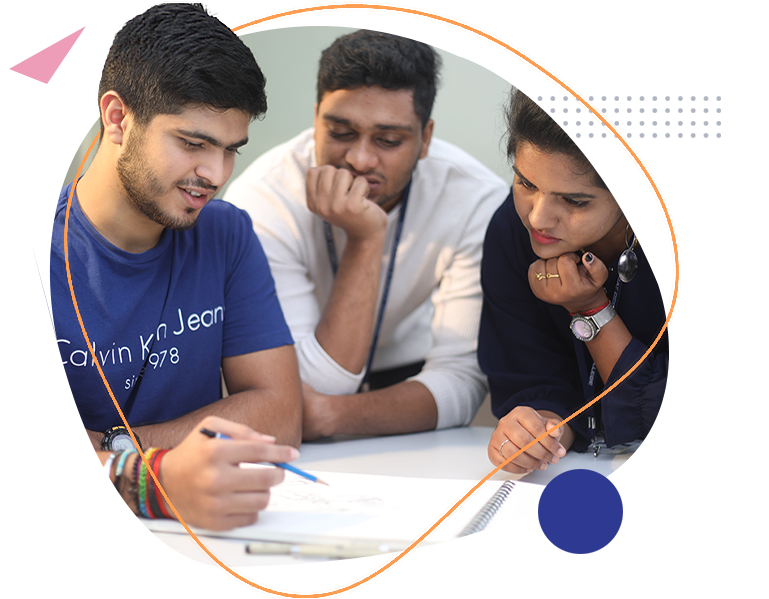
Why Game Programming?
Take Up the Most Esteemed and Rewarding Job
With rising youth population, higher disposable incomes, introduction of new gaming genres, fresh technologies that bridges the gap with the virtual world, and the increasing number of smartphone and tablet users, the Game industry in India is growing at a whooping rate of 14.3% annually. Also, as a potential market for games and as a hub of low cost and skilled manpower, India has become the prime hub for big development centers like Microsoft, Nvidia, UbiSoft, Zynga, Electronic Arts, Disney, Playdom, Sony, Digital Chocolate, etc.
In addition to the presence of game giants, the emergence of numerous fresh companies every year rapidly increases the need for able game professionals. Of them, game programmers are highly rewarded as they are ones who give the soul to a game.
Curriculum
The Learning Curve
Dear Student,Get Admission / Fees Details
* Required Fields
Skills to Build
Skills to Seek as a Game Programming Professional
-

Graphics API & Libraries - Open GL, Libgdx
-

Programming Languages - C++, C#, Java
-

Game Engines - Unity & Unreal
-

Platforms - PC, Mobile, Web, XR
-

Game Physics
-

Networking
-

Artificial Intelligence
Teaching Methodology
Learning Beyond the Walls

Learn through Self Exploration
The systematic way of research, analysis and reporting of any topic related to each module increases the knowledge stack of the students.
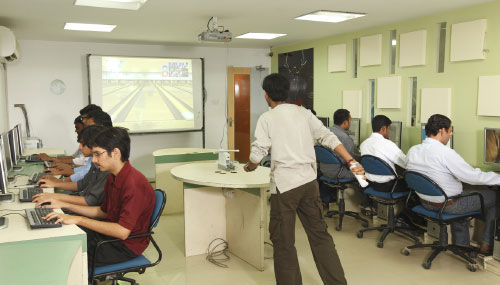
Brainstorm with Peers
Sharing ideas with like-minded people set the spark in you to a fire. We encourage our students to involve in group discussions with peers, in a guided environment that helps students learn to give a concrete shape to their ideas.

Inspire from What’s Around
Students constantly experience fresh inputs that trigger their creativity. They are taken outdoors for field research and artistic inspiration.
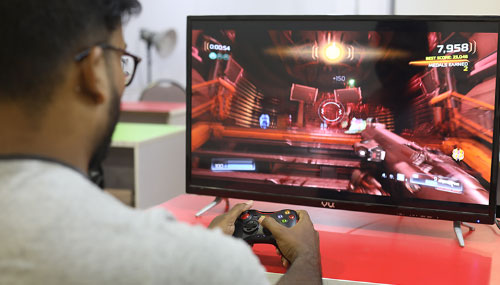
Know the Industry Process
Frequent visits to game studios and related companies give a clear understanding of the way the industry works, and blurs the line between the theories learnt and the practices in real time.
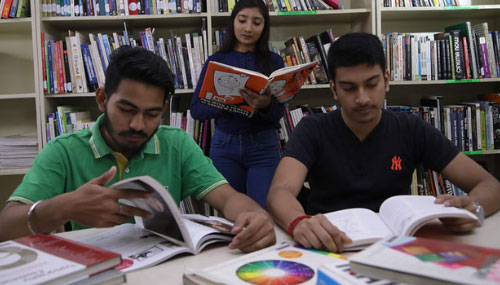
Get Knowledge Transfer from Professionals
Building competitive understanding of concepts and learning the professional way of doing a task happens at ICAT through seminars and workshops conducted by professionals holding a reputed position in the industry.
Students are also taken to professional conferences, art galleries, and similar events for them to understand the wide possibilities, and the current and futuristic technologies.

Craft the Programmer on Feedbacks
Positive criticism and remarks are very critical for the growth of any creator. For ICATians, this comes from veterans, professionals, and even the target audience to whom the students get to present their works and seek feedback from time to time
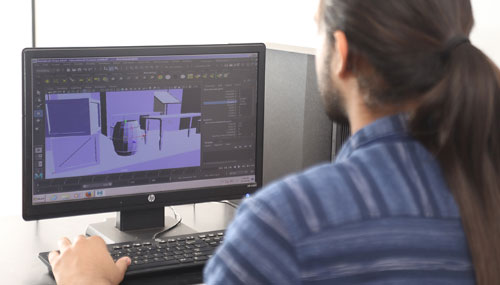
Practice Real Time
The curriculum at ICAT insists students to take up an internship in any related organization to get a clear and early insight of the industry, and build confidence to take up a career.
Student Awards
Rise and Shine
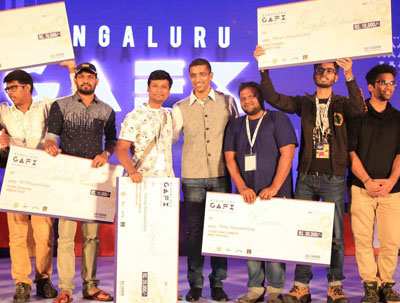
ICAT Student Won First PrizeGAFX CONFERENCE |
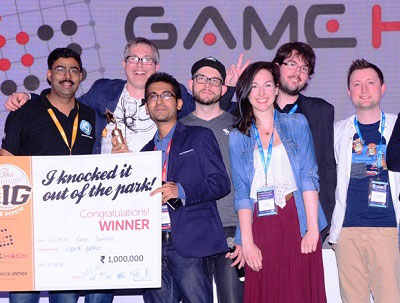
ICAT Alumni Wins a MillionPocket Gamer Connects |
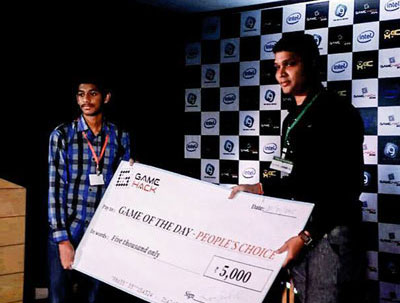
ICAT Student Won 2nd prize - ‘Black Hole’Gamehack |
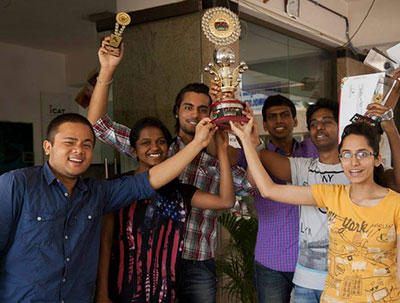
ICAT Students Won Runner-up AwardLa Fete Cultural Fest |
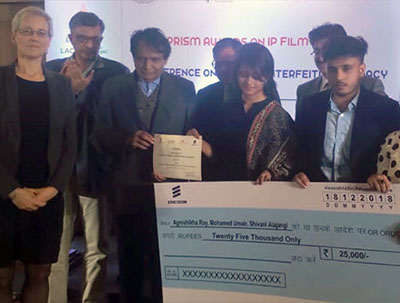
ICAT Student Won Runner-upIPGAF Competition |
Learning Facilities
Practical Learning

Learn by Doing – Right from the Basics
Probe into the world of coding to understand the possibilities among the widest of your ideas, by using the industry-standard facilities at ICAT campuses.

Experiment Ideas with Industry-Standard Machines
The IT labs and student laptops loaded all the necessary industry-standard software and tools open the digital world for the students to experiment their ideas.

Play and Learn
The Gaming Lounge in the campuses comes as a unique feature for the game students to experience the gameplay of games of different genres.

Practice the Art
The game students have access to Art and Design Studios to seek first-hand experience on design

The Knowledge Repository
Right from history of games to game building with latest technology, the students have access to all game building information through 100s of books and magazines. This helps them research beyond the class lectures and gain immense knowledge of the industry and current trends.

Common to All Departments
In addition to the specific facilities for each department, the campuses of ICAT College are loaded with spacious classrooms, common library with essential readings, locker facilities for students, air-conditioned halls, personal tutoring space, common working zone, students’ lounge, and so on.
Student Testimonial
Our Students Say
Alumni Success
Shining Stars
-
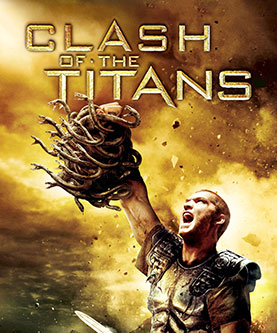
 Rajakanna
Rajakanna -
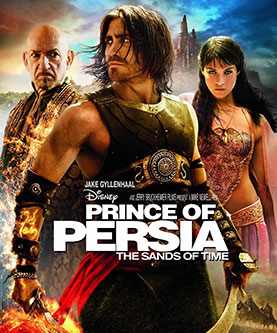
 Somasundaram
Somasundaram -
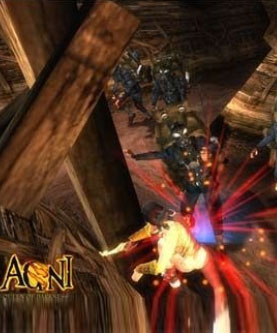
 Santosh Arya
Santosh Arya -
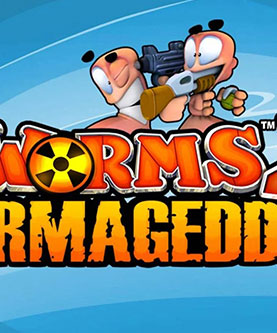
 Shukla Jayant Triveni
Shukla Jayant Triveni -
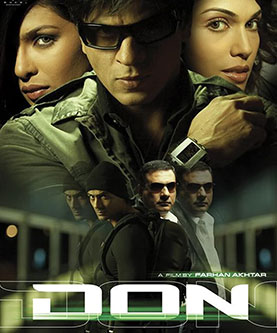
 Devrishi
Devrishi
Career Opportunities
Get Placed as a...
With an exclusive Placement Cell that holds a record of 100% placement, till date, we assure best jobs for every student who have gathered their skills and are ready to take up challenges of the industry.
As a Bachelor's Degree Game Programming graduate, the students can seek opportunities in well-known companies like TCS, Ubisoft, Sony, Rockstar Games, Technicolor, Electronic Arts, TechTree etc, similar to the alumni of ICAT. Also as the alumni, they can seek overseas career in firms like Magic Leap. The students can take up a role as:
 AI Programmer
AI Programmer Game Play Programmer
Game Play Programmer Game Engine Programmer
Game Engine Programmer Particle / Special Effects Programmer
Particle / Special Effects Programmer
 Plug-in / Tool / Apps Developer
Plug-in / Tool / Apps Developer Mobile / Web / Console Game Developer
Mobile / Web / Console Game Developer Graphics Programmer
Graphics Programmer Network Programmer
Network Programmer
Why Choose ICAT
Only at ICAT
The focus the program gives towards futuristic technologies and the global knowledge that veterans in our knowledge brigade brings help students stand apart as best in the industry.
Above these, the opportunity to work on Dissertations, create Portfolio, and take up Internship with renowned companies gives the sheer confidence and a cutting edge as an animation professional.
 100% placement
100% placement world-class curriculum
world-class curriculum Degree certified by eminent university
Degree certified by eminent university Highly equipped labs
Highly equipped labs frequent sessions from industry professionals
frequent sessions from industry professionals showcase events give the best learning experience
showcase events give the best learning experience
Top Placements
Meet Our Shining Stars
Top Recruiters
We Collaborate with 500+ Leading companies

Application Process
Become an ICATian
Step 1 : Fill the application form
Apply by Filling Application form.
Step 2 : Interview Process
Go through a direct communication with the Admission Team
Step 3 : Join ICAT
An offer letter will be send. Secure your seat by paying the admission fee.
International Professionals
Learn from the Veterans’ Perspective
| Name | Designation | Company |
|---|---|---|
| ERNEST ADAMS | Game Design Consultant | Trainer and Author of several best-selling books in the Gaming industry |
| Prof. WILLIAM CAMPBELL | Associate Professor | School of Computing, Mathematics & Digital Technology, Birmingham City University, UK |
| Prof. ANDREW WILSON | Program Leader | Computer Games Technology, Birmingham City University, UK |
Indian Professionals
| Name | Designation | Company |
|---|---|---|
| SENTHIL MURUGAN | Technical Lead | Wipro Technologies |
| SHARAT CHANDRA AITHAL | Game Developer | Worked on SmackDownVs Raw 2009 (PSP), Metro 2033 (PC), Darksiders (PC), Marvel Superhero Squad (X360), Homefront (Ps3) |
| SUJATHA NAGARAJAN | Game Programmer | Graxal Games |
| SOMASUNDARA PANDIAN.V | 3D Programmer & Researcher | Bumo3dr |
| CHELLADURAI N | Gameplay Programmer | Friends Learn |
| ELAM PARITHI ARUL | Mobile Developer | CompuSystems |
| ISHKARAN SINGH | Game Programmer | Ubisoft |
| NEELANCHALA | Mobile Game Developer | Hungama.Com |
| VRUSHKETAN | Game Designer | Digital Chocolate |
| NEERAJ KUMAR | Game Programmer | |
| BHOOPALAN | UX Specialist | |
| SRIKANTH JNSV | Unity Game Programmer | |
| Rupesh Mandke | Graphics Engineer | Root 16 Interactive Pvt. Ltd. |
| Senthil Kumar | Founder & Game Designer | Madiee Board Games |
| Raghu | Game Artist | Quenero |
| Saravanan | Game Artist | Quenero |
Campus Location
Study at Any of Our 3 State-of-the-Art Campuses
-
Chennai
153, Santhome High Road, Mylapore, Chennai - 600 004.
044 - 4293 4293, +91 - 95001 28555

-
Bangalore
424, Bommanahalli, Hosur Main Road, Bangalore - 560 068.
080 - 4110 7755, +91 - 96111 73607

-
Hyderabad
H.NO.3-1-30, S.Y.No:34/2 and 35, Bahadurguda, Saroornagar, L.B.Nagar, R.R.District, Hyderabad - 500 074
040 - 2447 7755, +91 - 75694 34552

FAQ
Still need anything to know?
This is the first item's accordion body. It is shown by default, until the collapse plugin adds the appropriate classes that we use to style each element. These classes control the overall appearance, as well as the showing and hiding via CSS transitions. You can modify any of this with custom CSS or overriding our default variables. It's also worth noting that just about any HTML can go within the .accordion-body, though the transition does limit overflow.
This is the second item's accordion body. It is hidden by default, until the collapse plugin adds the appropriate classes that we use to style each element. These classes control the overall appearance, as well as the showing and hiding via CSS transitions. You can modify any of this with custom CSS or overriding our default variables. It's also worth noting that just about any HTML can go within the .accordion-body, though the transition does limit overflow.
This is the third item's accordion body. It is hidden by default, until the collapse plugin adds the appropriate classes that we use to style each element. These classes control the overall appearance, as well as the showing and hiding via CSS transitions. You can modify any of this with custom CSS or overriding our default variables. It's also worth noting that just about any HTML can go within the .accordion-body, though the transition does limit overflow.
